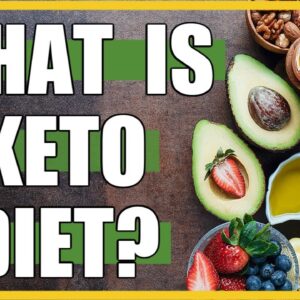This post may contain affiliate links which means I may receive a commission for purchases made through links. Learn more on my Private Policy page.
Are you curious about the ketogenic diet but don’t know where to start? Look no further! In this beginner’s guide to the keto diet, we’ll dive into the science behind ketosis and explore the ins and outs of following a low-carb, high-fat diet. You’ll learn how the keto diet can benefit your health, what foods to eat (and avoid), and tips for meal planning and staying on track. Get ready to transform your health and reach your weight loss goals with the power of ketosis.
A Beginner’s Guide to the Keto Diet: Understanding Ketosis and How to Follow a Ketogenic Diet
Introduction
Have you been considering a change in your diet lately? Have you heard about the Keto diet but don’t know where to start? Look no further! This beginner’s guide to the Keto diet is here to help you understand what it is, how it works, and how to follow it.
The Keto diet has gained immense popularity in recent years, thanks to its effectiveness in weight loss and various health benefits. So let’s dive in and explore the basics of the Ketogenic diet.
What is the Keto Diet?
Keto, short for Ketogenic, is a low-carb, high-fat diet that puts your body into a metabolic state known as ketosis. When you consume fewer carbs, your body begins to burn fat for energy instead of glucose. This process leads to a buildup of ketones in your body, which puts you in a state of ketosis, where the body uses fats as the primary source of energy.
How to Follow a Ketogenic Diet
If you plan to try the Keto diet, you must know which foods to eat and which ones to avoid. Here’s a beginner’s guide to get started:
Foods to Eat on a Ketogenic Diet
- Meats: beef, chicken, pork, lamb, bacon, sausage, etc.
- Seafood: salmon, tuna, cod, shrimp, etc.
- Eggs: any variety of eggs, such as scrambled, fried, and boiled.
- Vegetables: leafy greens, tomatoes, onions, peppers, broccoli, cauliflower, etc.
- Healthy fats: Avocado, coconut oil, olive oil, nuts, and seeds.
Foods to Avoid on a Ketogenic Diet
- Processed foods: chips, cookies, candy, and other packaged goods.
- Grains: bread, pasta, rice, cereal, etc.
- Refined fats and oils: corn oil, soybean oil, etc.
- Sugar: any sweets, honey, and other sugary products.
- Beans: chickpeas, lentils, and kidney beans.
- Alcohol: Beer, wine, and other alcoholic beverages.
The Benefits of the Keto Diet
Not only is the Keto diet an effective method of weight loss, but it also helps reduce inflammation, increases energy levels, and improves mental clarity. Additionally, the Keto diet has shown to improve brain function, prevent seizures, and reduce the risk of various diseases such as heart disease, cancer, and Alzheimer’s.
The Keto Flu
When you embark on the Keto diet, you may experience some symptoms known as the “Keto flu”. These symptoms include headaches, nausea, fatigue, and dizziness. However, these symptoms are temporary, and you can alleviate them by drinking plenty of water, increasing your salt intake, and getting enough electrolytes.
Conclusion
In conclusion, the Keto diet is a popular low-carb, high-fat diet that has proven to be effective in weight loss and provides many other health benefits. Keep in mind that it’s not just about consuming low carbs, but it’s also important to consume healthy fats regularly. And always make sure to consult with a healthcare professional before starting the diet.
FAQs
- How long does it take to enter ketosis on a Keto diet?
It can take anywhere from 2-7 days to enter ketosis, depending on the individual.
- How many carbs should I eat on a Keto diet?
As a general rule, you should aim to consume less than 50 grams of carbs per day to stay in ketosis.
- Is the Keto diet safe for everyone?
The Keto diet is safe for most people, but you should always consult with a healthcare professional before starting any new diet or exercise program.
- Can I eat fruits on a Keto diet?
Most fruits have high carb contents, so it’s best to avoid them while on the Keto diet. However, some low-carb fruits such as berries and avocados can be consumed in moderation.
- Can I eat cheese on a Keto diet?
Yes! Cheese is a great source of healthy fats, and most types of cheese are low in carbs, making them a perfect addition to a Keto diet.

